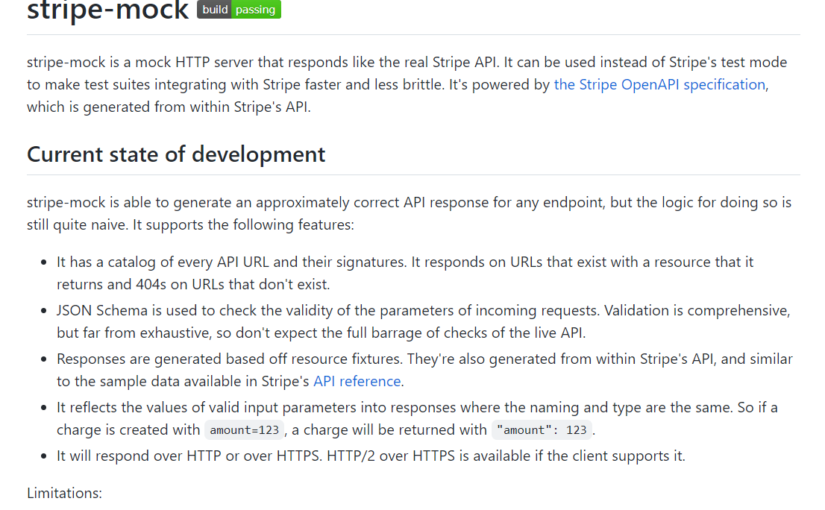If you’re using Plesk with ModSecurity and the free Comodo ruleset, understanding the rule categories is essential for effective website security. These rules protect your site from threats like SQL injection, cross-site scripting (XSS), brute force attacks, information disclosure, and protocol violations. Comodo’s ruleset also includes specialized protections for popular platforms like WordPress, Joomla, and Drupal, as well as safeguards against backdoors and malicious bots. While these rules provide robust security for your web applications, some—such as those targeting PHP information disclosure—can be overly sensitive and may require customization to prevent false positives and ensure smooth website functionality. Properly configuring ModSecurity in Plesk helps balance strong security with optimal site performance.
Category: Web Dev
Stripe Mock Testing in PHP
Stripe Mock Testing in PHP.
Make sure the Go version is up to date, the Stripe Client has the api_base set and the CURLOPT_SSL_VERIFYPEER is set to 0 for the curl client.
Using jq to update the contents of certain JSON fields
OK, I’ll be brief. I created a set of API docs with Apiary using Markdown format. We needed to change over to Postman, so I used Apimatic for the conversion. Which was 99% great, except for the item descriptions it only did a single line break, not two line breaks. As Postman is reading… Continue reading Using jq to update the contents of certain JSON fields
Can the REM stack be a thing
REM stack : React Express MongoDB It’s like the MEAN stack which means Mongo, Express, Angular Node. But Express is built on top of Node and is redundant. The other stack I still use a bit of LAMP. Linux, Apache, MySQL, PHP. If you like the idea then you can retweet this. Can the… Continue reading Can the REM stack be a thing


